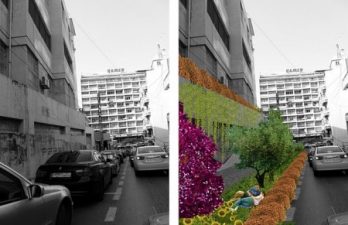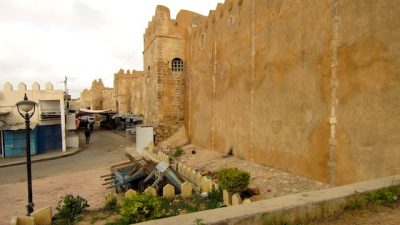Do you ever get the feeling that every time you close your eyes, someone in Europe is doing something brilliant for the environment? Well, the residents of Vauban, Germany live in a suburb where most streets are off-limits to cars and the shops are mixed in with housing. The town’s 5,500 people are packed into a square mile, where they walk and cycle their way through day-to-day life.
The New York Times reports that as a result of this planning, children are everywhere. Vauban, on the French-Swiss-German border, enjoys solid links to public transportation. Residents who want to keep their cars buy parking spaces for $40,000 in one of two town lots, but 70 percent of Vaubanites don’t have their own.
Vauban was completed in 2006. In its prior life it was a Nazi army base, with streets running between the barracks that would be too narrow to accommodate private car use. Today, those same streets are lined with energy-efficient apartment buildings, rather than detached single-family homes, which are forbidden. The town is planned in a ribbon shape, at the center of which runs the tram line.
Vuaban also has a car sharing club for families who don’t want to buy a vehicle of their own. Residents tend to make local shopping trips with the use of bike carts that haul their goods behind them. About half of them vote for the Green Party.
The Times reports that this car-less option is being explored in new residential developments in the United States and in Europe. It is certainly a smarter building move than tract housing subdivisions that depend on the automobile.
However, Vauban-style construction may be most appropriate for the developing world, where the countryside has yet to be overbuilt. In more economically advanced countries, including Israel, the best option would be to retrofit existing suburbs – such as Holon, Ramat Gan and Givataim outside of Tel Aviv – to operate without cars. Perhaps these places could start by outlawing cars in a central district, and gradually expand the area off limits to vehicles, while providing bike rentals and reliable public transportation to keep the neighborhood alive economically. This would vastly improve the quality of life for people who choose to live away from the chaos of the cities without eating into the limited stores of open space that remain.
(Photo via myauthorsite)
Read more on going car-free:
Tripoli Goes Car Free, If Only for a Day
Is It Possible to Go Free in the Suburbs?





This town blows
WOW cities like these are the best and help the enviroment!!!!!!!!
USA is woefully inadequate when it comes to having a variety of transportation.It is very hard without a car.It is very hard for a blind person.
It would be really neat to have a new Vauban. It’s funny, Israeli cities – even most of the intermediate suburbs like Kfar Saba, Holon, Ra’anana – have lots of apartment blocks, some mixed use areas and decent links to public transportation. The real issue is the lack of bike-friendly infrastructure, which would disappear or be reduced if there were Vaubanized districts.
On another note, I think we could introduce a new word to Israeli life to mean taking any form of transportation that isn’t a private car.
“Want a ride to the supermarket?” “No thanks, I’m Vaubanning.”
I lived in a Swiss village for a year. A group of about 30 of us shared a car for weekend trips, and jaunts to the grocery store. We paid per km used, and not gas, which was factored into the per km tariff. (The Swiss are very good at calculating fair prices… )
Most of the time the car sat idle.
Mainly I rode my bike everywhere (even around mountains), and took the ever accessible and cheap train everywhere, even to the teeniest tiniest villages. It was a beautiful thing. I dream of such a train for Israel. I dream that Tel Aviv and Jaffa could become Vauban….